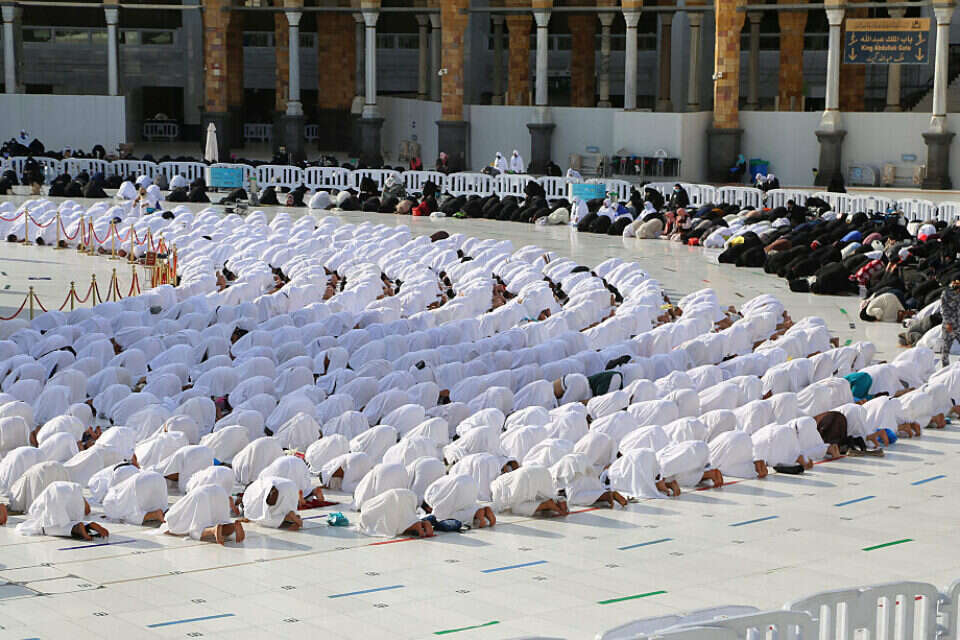There were days when the demographic question was perceived as a key question in the Israeli-Palestinian conflict, and all remember Yasser Arafat's words, according to which the womb of women is the national weapon of the Palestinians, with which they will become the majority between the river and the sea.
But these days have passed, and it turns out that the Jewish majority is stronger than ever, thanks in part to the waves of immigration from Russia and Ethiopia, as well as to an increase in births in the Jewish sector.
In the last decade, the Middle East has been talking about demographics and counting births, deaths and immigration. But this is no longer a struggle between Israel and the Palestinians, but a Sunni-Shiite struggle, and in fact a struggle between Iran and the Arab states, which has become a major issue on the agenda of the region's residents. In this struggle, demography plays a key role, and when necessary, the Iranians and their allies do not shy away from "Hindus" demography so that it will serve their aspiration for regional hegemony.
In Syria, where members of the Sunni community made up a majority of about 60 percent of the country's population on the eve of the outbreak of the civil war compared to the Alawites, of whom the Assad dynasty belongs, only about 12 percent, a major upheaval took place.
This upheaval is the work of the Syrian regime and its allies, Russia and Iran, who carried out ethnic cleansing during which about a third of its population, about 8 million Syrians, were expelled or fled, most of them members of the Sunni community from the villages where the uprising against Assad and his regime broke out.
In the area now controlled by Assad, about 10 million Syrians remain, and the proportion of Alawites among them has doubled to a quarter and possibly even more.
A turning point also occurred in Iraq following the American occupation, which led to the removal of Saddam Hussein, who was - like all his predecessors in power - a member of the Sunni community.
The proportion of Shiites who control the country has increased to about 65 percent, and the rest is divided between the Kurds and the Sunni Arabs, who have become a marginal community and many of them even fled to Jordan and at the same time to Syria.
In Lebanon, too, Shiites have become the largest community in the country, to a third of the population, in front of Christians who have lost the majority they enjoyed and today they make up only about a quarter of Lebanon's population, and finally Sunnis and even Druze, who are also about a third of the population.
However, another upheaval took place in Lebanon during the civil war, and today one in three Lebanese (about 2 million out of a population of 6 million) is a Syrian refugee or a Palestinian refugee.
Finally, it is worth mentioning Jordan, which in the past was overshadowed by the tension between the Palestinians, who made up about two-thirds of its population, compared to the Bedouin from the East Bank.
Today, a third of the kingdom's residents (about four million out of 11 million) are refugees from Iraq or Syria.
The implications of this reality on internal stability in these countries are clear.
All this before we mention the accelerated natural increase, and on the other hand the depletion of natural resources due to the climate crisis, which are debating the population in the area for distress, scarcity and poverty.
The Fertile Crescent is no longer Sunni as it has been for a thousand years, thus seemingly to serve the aspirations of Iran's hegemony, which seeks to strengthen its position in the region by fueling ethnic tensions, and does not shy away from bringing about demographic changes that will serve it.
It turns out, therefore, that not everything that happens in the region is related to Israel and its conflict with the Palestinians.
Were we wrong?
Fixed!
If you found an error in the article, we'll be happy for you to share it with us





